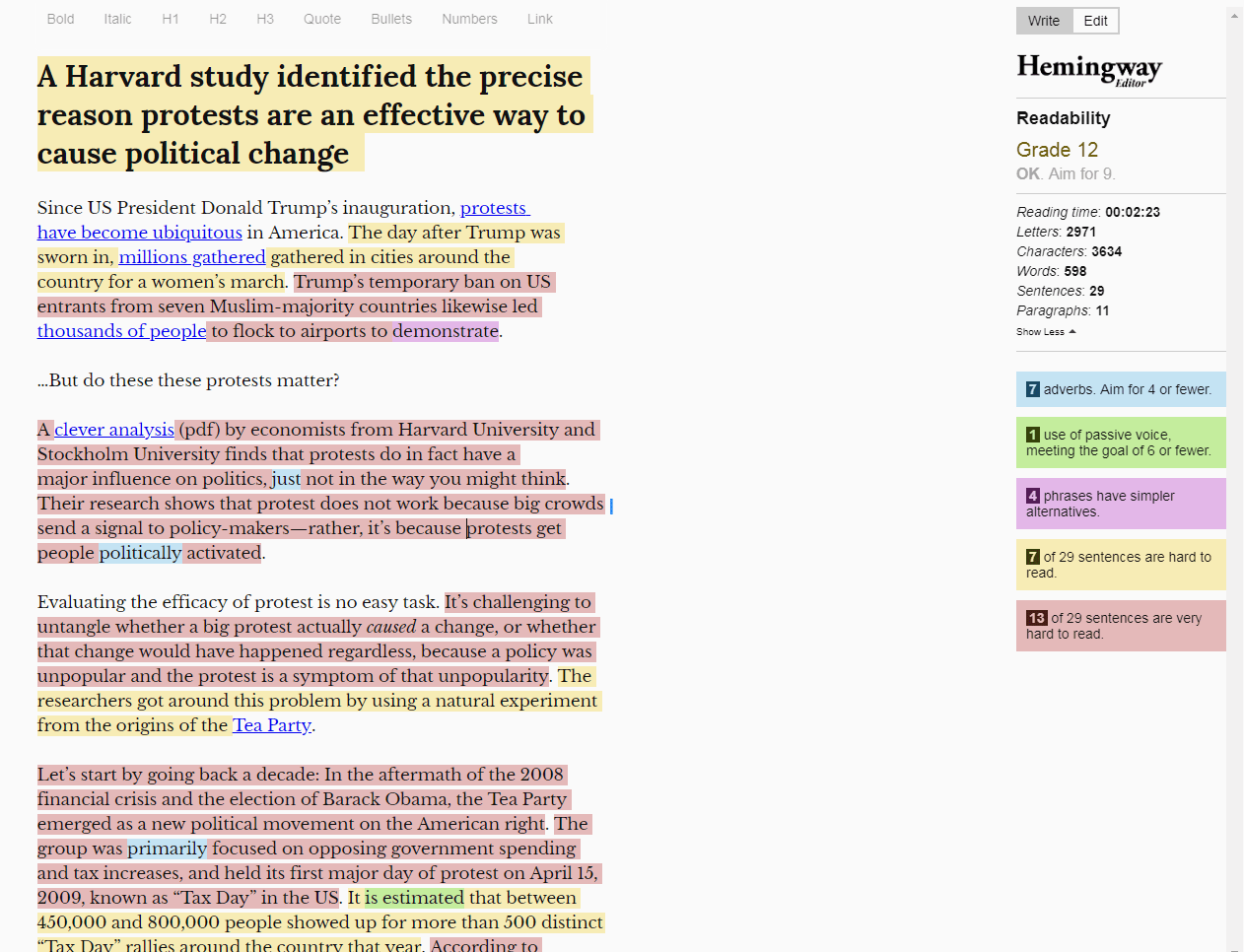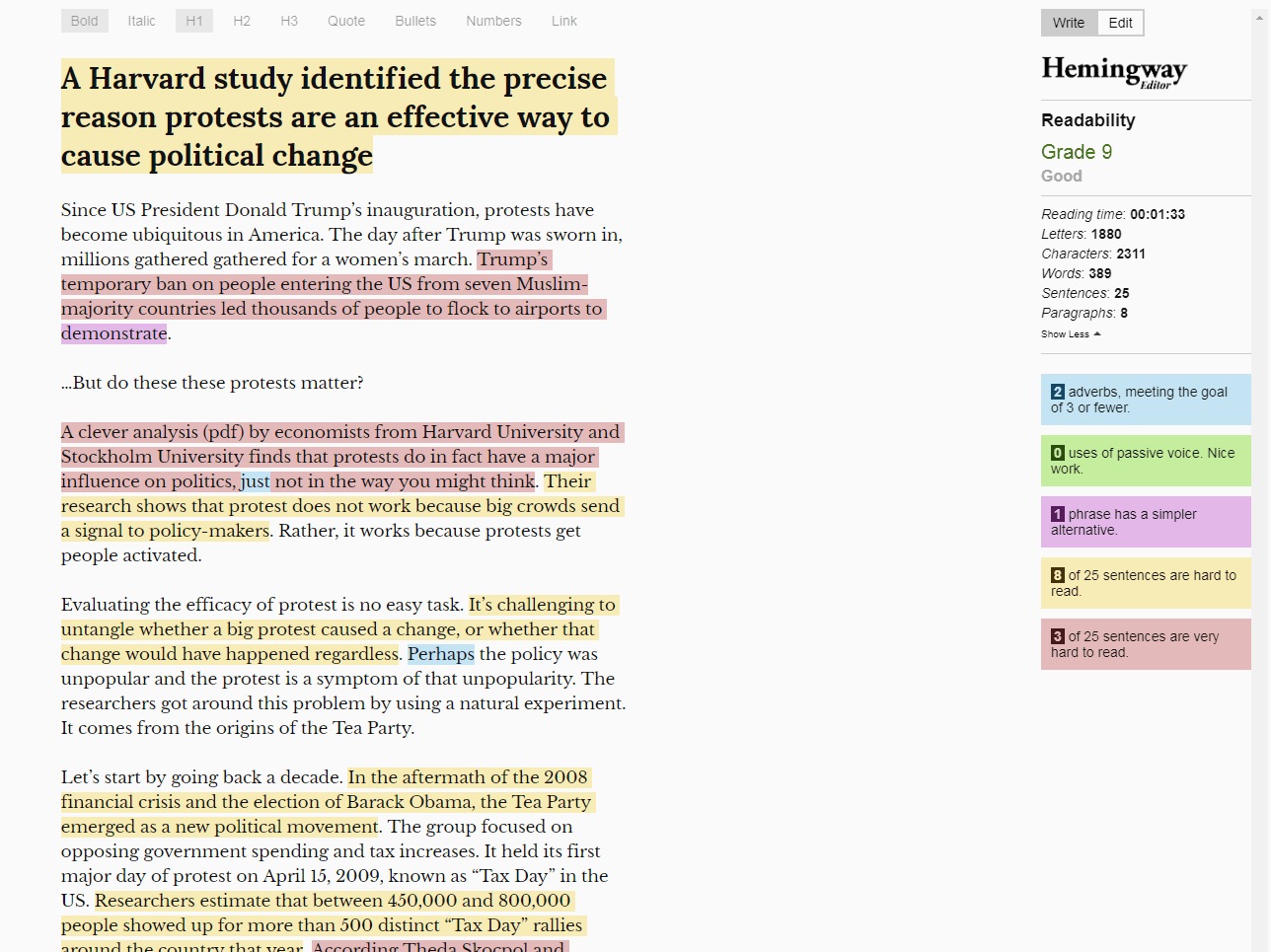The Hemingway Editor revises Dan Kopf’s article for Quartz magazine
This experiment was carried out by Dan Kopf, “a professional writer” who “often hate[s] [his] writing” and wishes it were “more concise and powerful.” When he discovered The Hemingway Editor, he tested it out on a previously published but “unpopular” article of his own. Kopf’s hypothesis was that maybe the poor readability level was the reason why his piece wasn’t much read.
Indeed, according to Kopf, “almost the entire piece was highlighted” by the tool:
“The app warned me that my story was written at Grade 13 level (it suggested I bring it down to 9). Twenty-one of my 27 total sentences were “hard” or “very hard” to read. I had also used seven adverbs, more than double the number the app suggests for the number of words in my story.
The main aspect of my writing that the app didn’t like was the length of my sentences.”
Here’s a screenshot of the editor’s diagnostics we took when replicating Kopf’s experiment:
Following the app’s advice, Kopf then rewrote his article. He got rid of most of the adverbs, of the one and only instance of passive voice, and of excessive signposting that creates wordiness (i.e. “According to their research…”). He also split the lengthy sentences into several shorter ones. Overall, he managed to bring the readability score down to Grade 9 (the equivalent of text that can be understood by a 15-year-old).
Here is a snapshot of the result for the revised version:
Yet when Kopf showed the revision to his editor at Quartz (who had edited the original version), her “gut reaction” was “to prefer the original.” In Kopf’s own words,
“She found the abundance of short sentences choppy, the app’s aversion to colons unreasonable, and worried it was taking away my voice.”
Kopf agreed. The Hemingway-esque simplicity can border banality. Instead, he felt he wanted to “be swept away by a compound sentence filled with em dashes and prepositions.”
There is, however, value in using The Hemingway Editor. As Kopf and his editor concluded (and we tend to agree with them), running a draft through The Hemingway App can be “a super useful exercise” that helps the writer notice unnecessary wordiness or confusing sentences with convoluted syntax.
Texts used in the experiment: Dan Kopf’s article, “A Harvard study identified the precise reason protests are an effective way to cause political change” (3 February 2017), published in Quartz magazine.
To read more about Kopf’s experiment, have a look at his piece “Don’t like the way you write? An artificial intelligence app promises to polish your prose” (10 March 2017), also in Quartz. He’s published the full edited version of his article on political protests here.

